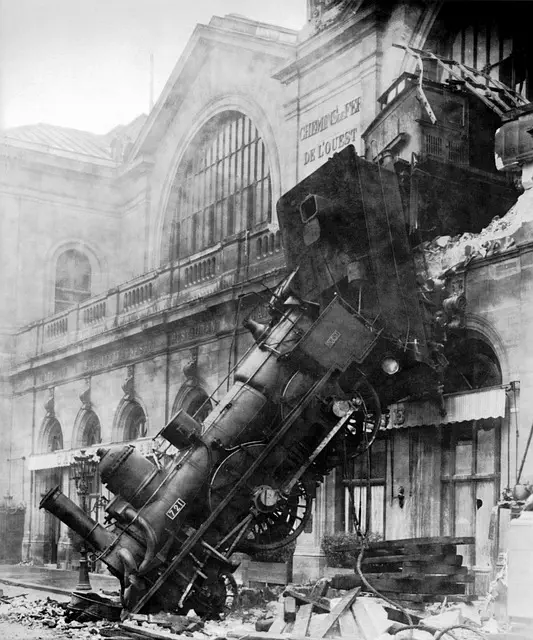Commercial truck accidents, especially involving rideshare services, have severe consequences, underscoring the importance of understanding legal responsibilities. Rideshare Safety Litigation has brought focus to the roles of drivers, trucking companies, and manufacturers in ensuring safety. Key factors include duty of care, investigations into liability, and addressing causes like driver fatigue, distracted driving, maintenance issues, and improper loading. Understanding the legal process involves evidence gathering, identifying liable parties, filing lawsuits, and consulting specialized attorneys. Many jurisdictions have implemented strict liability laws to enhance Rideshare Safety Litigation, leading to improved safety measures and a safer environment for all road users.
“Commercial truck accidents can have devastating consequences due to the size and weight of these vehicles. This article delves into the intricate world of commercial truck accident lawsuits, offering a comprehensive guide for victims and legal enthusiasts alike. We explore key factors and responsibilities in such cases, with a focus on rideshare companies’ role in ensuring driver safety. Understanding common crash causes is vital, as well as the legal process behind filing a truck accident lawsuit. Additionally, we analyze the impact of strict liability laws on rideshare safety litigation, shedding light on potential game-changers for passenger protection.”
- Understanding Commercial Truck Accident Lawsuits: Key Factors and Responsibilities
- The Role of Rideshare Companies in Ensuring Driver Safety
- Common Causes of Commercial Vehicle Crashes
- Legal Process for Filing a Truck Accident Lawsuit
- Impact of Strict Liability Laws on Rideshare Safety Litigation
Understanding Commercial Truck Accident Lawsuits: Key Factors and Responsibilities

Commercial truck accidents can have devastating consequences, leading to severe injuries and even fatalities. When such incidents occur, understanding the legal aspects is crucial for victims and their families. Rideshare safety litigation has brought significant attention to the responsibilities of various entities in ensuring passenger and public safety. In the context of commercial truck accidents, several key factors come into play.
One of the primary considerations is the duty of care owed by truck drivers, companies, and manufacturers. Drivers must adhere to strict regulations regarding hours of service, vehicle maintenance, and safety protocols. Trucking companies are responsible for hiring qualified operators, maintaining their vehicles, and implementing proper training programs. Additionally, manufacturers play a critical role in designing and producing safe trucks, ensuring compliance with federal motor carrier safety standards. The interconnection between these entities creates a complex web of liability when accidents occur, necessitating a thorough investigation into each party’s responsibility.
The Role of Rideshare Companies in Ensuring Driver Safety

Rideshare companies play a pivotal role in ensuring driver safety, particularly as their operations are closely scrutinized under commercial truck accident lawsuits. With the rise in popularity of ride-sharing services, there’s an increased focus on holding these companies accountable for potential risks associated with their drivers. Rideshare safety litigation involves complex legal battles centered around issues like proper training, background checks, and supervision to prevent accidents caused by negligent or unsafe driving practices.
These companies must implement robust safety protocols and regularly update them to keep up with evolving regulations and technological advancements. Effective communication between drivers and passengers is also essential, ensuring everyone involved understands the expectations for a safe journey. By prioritizing driver education, background screening, and ongoing monitoring, rideshare companies can significantly reduce risks, thereby minimizing their exposure to legal repercussions in the event of accidents.
Common Causes of Commercial Vehicle Crashes

Commercial vehicle crashes, including those involving trucks and rideshare services, can result from a variety of factors. Some common causes include driver fatigue, which is often exacerbated by long hours and strict schedules; distracted driving due to the use of mobile devices or attempting to perform other tasks while behind the wheel; and poor weather conditions, such as heavy rain, snow, or ice, which can reduce visibility and control.
Additionally, maintenance issues with commercial vehicles, like tire problems, faulty brakes, or malfunctioning lights, pose significant risks. Overloaded trucks or improper loading techniques also contribute to crashes by compromising stability and handling. Furthermore, in the context of rideshare safety litigation, the actions (or inactions) of both drivers and dispatch systems play crucial roles. This includes issues related to driver screening, training, and monitoring, as well as the responsiveness and reliability of ride-sharing platforms in ensuring safe operations.
Legal Process for Filing a Truck Accident Lawsuit

When filing a truck accident lawsuit, understanding the legal process is crucial for achieving justice and compensation. The first step involves gathering essential evidence, including medical records, police reports, and witness statements, to substantiate the claim. This documentation plays a vital role in Rideshare Safety Litigation, ensuring that all aspects of the incident are thoroughly examined.
Next, victims or their legal representatives must identify the liable parties, which can include truck drivers, trucking companies, or maintenance crews responsible for vehicle safety. Filing a lawsuit requires drafting and submitting legal documents to the appropriate court, outlining the incident, alleged negligence, and sought-after damages. The process involves navigating complex laws and regulations, making it essential to consult experienced attorneys specializing in commercial vehicle accidents.
Impact of Strict Liability Laws on Rideshare Safety Litigation

In many jurisdictions, strict liability laws have been implemented to enhance rideshare safety litigation. These laws hold companies accountable for the actions of their drivers, even in cases where negligence might not be immediately apparent. This shift towards strict liability has significantly influenced Rideshare Safety Litigation by reducing the burden on victims to prove fault, thereby expediting legal processes and increasing compensatory awards.
The impact is particularly notable given the surge in rideshare services. With more drivers on the road, the potential for accidents increases. Strict liability laws ensure that rideshare companies take proactive measures to mitigate risks, including improved driver screening, safety training, and advanced technology integration. Consequently, these legal frameworks play a crucial role in fostering a safer environment for both passengers and other road users, thereby shaping the landscape of Rideshare Safety Litigation.
Commercial truck accidents can have severe consequences, and understanding the legal process is crucial for victims seeking justice. The article has explored key factors in these lawsuits, from recognizing responsible parties to navigating the legal system. Rideshare safety litigation plays a significant role, as strict liability laws aim to enhance driver accountability. By examining common crash causes, we can identify preventative measures, ultimately reducing the impact of these accidents and fostering safer rideshare environments.
